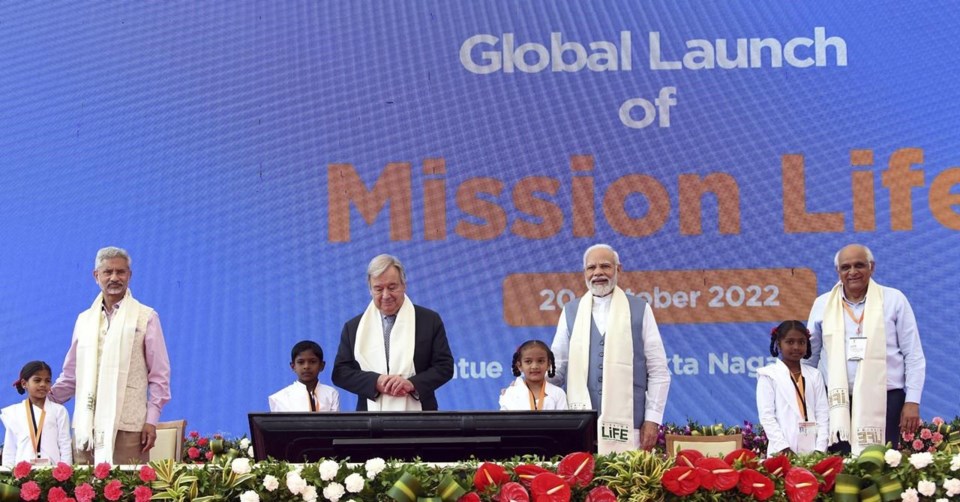BENGALURU, India (AP) — The Indian government's flagship program to encourage individual and collective action on climate was launched by Prime Minister Narendra Modi and the United Nations Secretary-General on Thursday.
Mission Life, where "life" is an acronym for “lifestyle for environment,” is designed to encourage individual behaviors like switching off vehicle engines at traffic lights, turning off taps when not in use and switching to longer-lasting alternatives to single-use plastic bags. The government estimates those actions, if taken on a national scale, could significantly limit emissions, water use and waste.
The program hopes to “mobilize one billion Indians as well as people in other countries to become individuals who practice sustainable lifestyles," Param Iyer, CEO of Niti Aayog, a government-supported think tank that are spearheading the Mission Life program alongside India’s federal environment and climate change ministry.
U.N. chief Antonio Guterres, who is on a three-day visit to India and was at the program’s unveiling in the western Gujarat state, hoped the focus on more sustainable living “can spread throughout the world.”
While they see the potential benefit of such a program to reduce emissions, climate experts are still unclear about how the project will play out.
“At an individual level, Mission Life is a welcome measure, both ethically and environmentally,” said Nagraj Adve of the climate advocacy group, Teachers Against the Climate Crisis.
But he added that “the program needs to be complemented by enabling policies such as higher income and wealth taxes, making flights more expensive, promoting renewable energy and more public transport” to encourage lifestyle changes.
"It still remains to be seen if the government will work towards all of this.”
___
Follow AP’s climate and environment coverage at https://apnews.com/hub/climate-and-environment
___
Follow Sibi Arasu on Twitter at @sibi123
___
Associated Press climate and environmental coverage receives support from several private foundations. See more about AP’s climate initiative here. The AP is solely responsible for all content.
Sibi Arasu, The Associated Press



